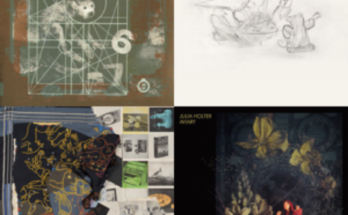You can’t picture the actual amount of records that Journey has sold. It’s simply too many to be possible. At 75 million and counting, their records have songs that are beyond being fixtures of rock; they are anthems, and practically each one says the same thing: roll down the window and turn the volume up, way up, and don’t be afraid to belt it out. It’s suddenly a different world.
The band formed in San Francisco in 1973, as the product of former Santana manager Herbie Herbert’s brainstorm. He plucked child guitar prodigy Neal Schon from Santana and formed what was to be the start of Journey. Schon was 15 at the time, and he is now the longest-standing member of Journey. He has taken from the school of Hendrix and Zeppelin and realized that expression never finds top form at half volume, and like the rest of Journey, he plays with unabashed rock-star abandon.
He co-wrote many of Journey’s hits, such as “Any Way You Want It,” “Don’t Stop Believin'” and “Wheel in the Sky,” with legendary front man Steve Perry. The two have a long-standing, tenuous relationship, including 10 years without contact, and often resulting in the band’s breakups or, conversely, wildest successes.
One could make the argument that there is something anachronistic about the age-old rock formula exhibited by Journey, that indeed the songs themselves have long been over-played. In Rolling Stone’s History of Rock ‘n’ Roll, they first call Journey a “laughingstock” but go on to say that “the band still holds up … because it never took its loud guitars for granted. Journey made sure its noise meant something.”
Similarly, many college students seem to reflect this dual response. As a group, it’s as if we’re unable to decide whether our Journey support should be patronizing or shameless. Either way, it must be admitted that there is something touching about Journey’s belief in the formula that they’ve always played. It’s reassuring to know that some bands won’t alter their style as the times change, and really, what would be the reason?
Journey is still out there, rocking the big crowds and urging us to put on jeans too tight, inch that lighter out of the pocket, lift it high, and just sway.
buzz: Having been with Journey off and on since ’73, what’s the trick to staying with the band?
neal: I don’t know what the trick is, man. You know, obviously I feel as if I have some deep roots in this band and with the members that have been here and that are here now. I feel like I’m definitely one of the founding members and that it’s not over yet and that there are still a lot of people out there that still want to hear our music and are coming to see us. We’re doing great business this year live, and we’ve got a lot of brand-new fans, a lot of younger fans. So as long as it’s not over, it’s not over.
buzz: Tell me about your live shows these days. What are some of the big differences that you’ve noticed since a couple of decades ago when you were playing?
neal: Well, the biggest difference in the whole music genre is the industry itself. You know, the way things are being run, what is being played on the radio, the way radio is controlled, the way major labels do not support bands anymore like they used to. In our heyday and much before that, CBS was very behind us and basically supported us throughout the years. And now what I see happening is that they go pretty much for the flavor of the month. They spend a ton of money to get that one record out there and a lot of money on a video. The kids that ever sign with them are never going to see a cent, because it’s all recoupable. They get them out there, and then they make their money and then some, and then move on to the next flavor of the next month. I don’t see them standing behind any bands and really supporting them, very few anyway.
buzz: How much priority has Journey placed throughout the years on not altering their style-as opposed to constantly trying to shoot in different directions?
neal: I don’t think that we’ve ever tried to alter our style. I’ve tried to go in some different directions, but I’ve always found that when I try it, it doesn’t really sound like the band. The band just sounds like the band when we get together and we write together and what comes out is what the band is. I bring in some stuff that’s a bit harder-edged that I like to write, and I just found that it’s better off living somewhere else as another entity. I have the Soul Sirkus band now to do that stuff in. I have a lot of different forms of expressions on the guitar, and that’s why I like to do solo records and projects and that sort of thing.
buzz: Would you say that’s one of the tricks then to staying with the band, supplementing it with side projects?
neal: I have to say it probably has a lot to do with me not getting frustrated of just doing one thing. Not that the one thing is frustrating. It’s just that I feel that I’m a well-rounded musician, and I’ve got a lot of different things to offer. So, when you don’t get them out and you’re not able to express those things, I think one would tend to become frustrated.
buzz: I wanted to ask about the band’s early days, back in San Francisco, before Steve Perry. There was a different sound-less polished, more experimental-than the Journey we’ve come to know.
neal: Oh, completely different, and we’re playing a lot of that stuff this year in concert. We basically start out our show with that stuff. We’re going in some sort of chronological order from where we came and where we’re headed. We started the tour as “Journey takes you to the past and to the future.” It’s not so dead as a greatest hits tour, even though we play all the hits. I wanted to see what it felt like to dive back into stuff that I haven’t played since 1978. It’s a real trip for me to walk on stage and play the very first stuff that we ever played. We end up the concerts with the megahits we’ve had, and then we lay the stuff from our new album, Generations, on the audience.
buzz: Did you ever stop believin’?
neal: Well, you know, there was 10 years that went by. At the time Mr. Steve Perry had just decided that he had had it and, in his words, said he was toast, needed to take some time off right in the middle of a tour. That turned into a year, two years, three years. Then all of a sudden 10 years later there’s a call from Steve Perry to John Cain, says he wants to do a record. I’m like, what? This is kind of off-base for me at this point, and I just thought it was a bit ironic to come from out of the woodwork 10 years later and all of a sudden want to do a record. But we made the record. We got through it. It was fun playing with the guys again. Unfortunately [Perry] had some physical ailments, and we were never able to tour, which was very frustrating at that point. It’s almost like when you fall off a bike and you get off the bike and it falls down and you fall down with it and you get back on it and you ride it. It’s almost like it never went away. And that’s what it felt like when we got back together. So it was just very disappointing to all of us that we couldn’t get out there and play. We waited close to two years and the rest of the guys and I got together and talked about it. And we just decided to move on and this is our eighth year running with the same guys. I think our fans have completely welcomed us, showing up more and more every year when we’re playing live. That’s what this band has become-a live band again-and that’s really real. Everything that’s on video is a video, and everything that’s on CD, you can’t tell how much is real anyway. So when you’re playing live, people can actually feel it and they can see that you’re there. It’s been working great for us.
buzz: Off the top of your head, any good stories from the road?
neal: Lots. [Laughs] But we don’t have the time to go into them. Someday I’ll write a book.



